It’s time we turned to inclusive, trauma-informed pedagogy

There is a student protest going on demanding the removal of a colleague for political comments made on social media. Since the matter is under investigation, I shall not elaborate on the issue. However, in expressing their demands in public, a section of students—existing and immediate past ones—have expressed their views on some other senior colleagues and their contributions as public intellectuals. The derogatory tone is disingenuous to these nationally awarded colleagues who have dedicated their entire careers to teaching.
One of the safer comments—"hype 100%, contribution 0%"—will give you an idea of the nature of acrimony that exists. My gut reaction was, how could our students think that they were the only ones with feelings and the prerogative to be hurt? They seek punishment for hurtful words and then want their words to be uttered with impunity. As a father of a daughter who belongs to the current generation, I am used to ignoring such rash remarks and then guiding her about the tone or content at an appropriate time. She has been my litmus in the generational beaker to understand the chemistry between the old and the new agents.
As I read through the student comments, it is becoming increasingly evident that intergenerational chemistry is no longer present. This is a generation that believes it must win every argument. The big question is, how do we teach a generation that thinks it has already won the argument? Unless we, as teachers and policymakers, acknowledge that a perceptible cultural shift has occurred—one in which segments of Gen Z view traditional authority figures such as teachers and parents as irrelevant, outdated, or even obstructive to their worldview and ambitions—we risk becoming ineffective. This sentiment has grown not only out of deeper generational divides, but also from technological and epistemological ruptures. The transmissional model of teaching, through which we learnt to admire our teachers, has gone out of style.
The feeling that Google knows more than teachers now, and AI can deal with most academic challenges, has created a tech-orientated culture that demands a complete overhaul of our pedagogical model: one that is dialogic, co-creative, and adaptive. This learning model is more than insisting on using digital devices or adopting AI in class; it's about how we reimagine the purpose of education. The issues of authority and relevance will automatically follow. If our students think that they have already won the argument because they know what they need to know, the challenge for us is to teach them how to evaluate, cross-check, and ethically engage with knowledge in an information-saturated world. We need to teach them, "What do you do with what you know, and why?" The authority with which teachers used to approach their students needs to be replaced with authenticity and intellectual humility.
Teachers as co-learners can identify knowledge gaps and ask open-ended questions to contextualise and curate knowledge. Teachers need to be fellow travellers in this journey. And it is during this journey that the teacher-student relationship needs to be based on mutual respect. The old norms of enforcing rules and demanding respect are invalid. In this new model, teachers and students need to share a dialogic platform to co-create norms and foster respect. I know my colleagues in the humanities are aware of these cultural shifts. But the recent rift has shed light on the emotional and cognitive challenges that we face in classrooms. This difficulty stems from the absence of a trauma-informed and inclusive pedagogy.
The July mass uprising has created a strong sense of political efficacy. Students can now boldly, albeit rightly, claim, "We made the political change happen." The sentiment entails empowerment and a sense of ownership over institutional narratives. In doing so, students bring political energy into every space, including the physical classroom and the cyberspace of social media. Students challenge the moral authority of a teacher, expecting them to earn both relational and intellectual trust. They scrutinise every utterance, whether verbal or non-verbal, for ideological relevance.
We must explain the attack on senior teachers by highlighting the radical relevance of ideology. The celebrity status of a faculty member or the cult figure assumed by some of the public intellectuals is often at odds with a student who has come to the university from a completely different background. For instance, someone who has come from a madrasa system may find it difficult to justify the accolades given to a left-leaning or so-called culturally progressive teacher. Then there is this worldwide relegation of humanities and social sciences as job-orientated disciplines. The rise of STEM and endorsement of such views by world leaders or iconic entrepreneurs intensify the issue further.
It is about time we introduced trauma-informed pedagogy that recognises the emotional, psychological or even physical trauma that students bring into the classroom. A class is not a homogenous space, particularly in a public system where most students choose their majors not out of choice but rather by default. The personal, political, economic, or environmental experiences that students bring can affect how they learn, behave, and engage. A student from a disenfranchised group may have a deep-seated anger towards the assumed or projected social and financial standings of certain teachers.
Institutions, therefore, must create a code of conduct that provides physical, emotional, and psychological safety during class discussions and assessments. They must adopt a fair and transparent assessment policy so that students do not feel afraid to speak up. The empowerment of student voices will allow them the agency needed in their learning process. Teachers need to respect students' diverse identities and lived experiences as a model for their inclusive pedagogy. As teachers, our job is to create a collaborative space to accommodate students from diverse backgrounds, identities, and learning styles so that they feel valued and supported.
The problem arises when extreme ideological positions view the use of gender-neutral and culturally relevant teaching materials as an encroachment. We have already seen how the diversification of the curriculum to include marginalised voices (e.g. Indigenous and minority groups) was resisted by some newly empowered groups. The resistance is perceived as a challenge to the urban, elite academic norms that mainstream education has perpetuated over the years. The comments made by our students against our teachers, therefore, expose moral or psychological injury. The students who have seen and participated in the July uprising are witnesses to violence, duplicity, and systemic collapse. I think with time their rash reaction will reach an understanding of the consequences of their harmful words. But we need to take the current situation as an opportunity to work on an inclusive and humane system that rethinks learning models for the technologically advanced generations of today.
Dr Shamsad Mortuza is professor of English at Dhaka University.
Views expressed in this article are the author's own.
Follow The Daily Star Opinion on Facebook for the latest opinions, commentaries and analyses by experts and professionals. To contribute your article or letter to The Daily Star Opinion, see our guidelines for submission.

 For all latest news, follow The Daily Star's Google News channel.
For all latest news, follow The Daily Star's Google News channel. 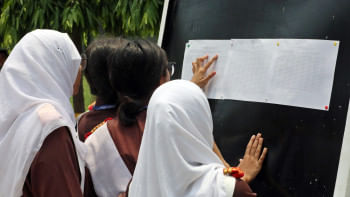
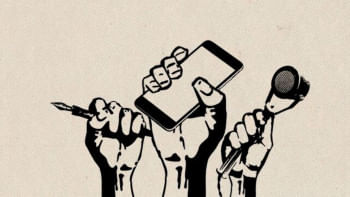






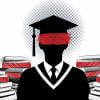
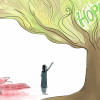

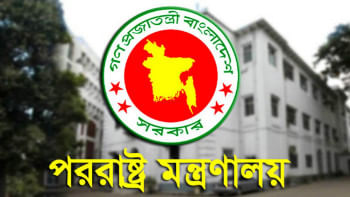
Comments